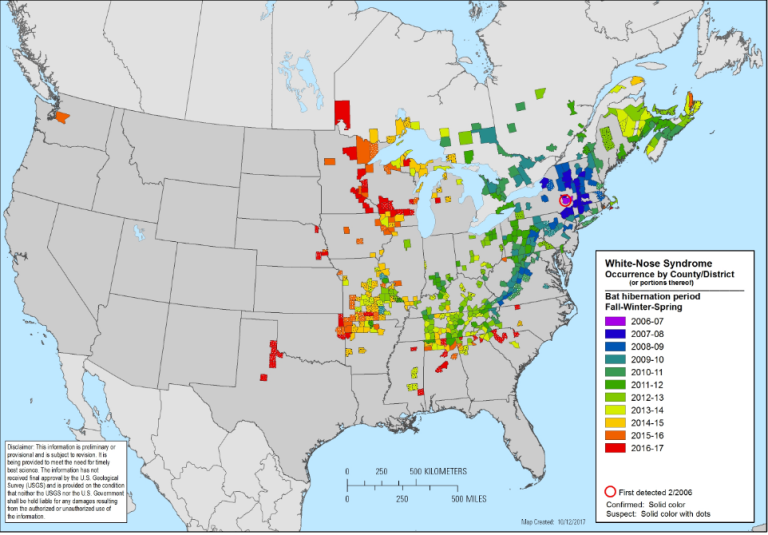A devastating bat killing disease that’s crippled bat populations in eastern parts of North America could threaten bat species in B.C., and wildlife officials are now asking for the public’s help.

A fungal disease– known as White Nose Syndrome– has killed more than six million bats since 2006.
The disease emerged in New York more than a decade ago and over time migrated to other U.S. states and eastern Canada before leapfrogging to Washington State; alarming environmentalists.
“We’re really worried that it is going to be coming here to British Columbia,” said Paula Rodriguez de la Vega, coordinator with the Okanagan Community Bat Program.
The disease is caused by a fungus that grows over the bats’ faces while they hibernate in winter.
It’s almost always fatal and there is no cure.
Tanya Luszcz, wildlife biologist with Environment Canada, captures the sound of the bats’ echolocation utilizing special equipment to determine the species and size of bat populations living in the Okanagan.
She says the federal government recently listed three bat species as endangered.
“The next stage would be protecting critical habitat for these species on federal lands and working with the Province of B.C. and other partners to conserve these habitats,” she said.

Get breaking National news
Wildlife officials are also asking for the public’s help to monitor the spread of the crippling disease.
“We’re asking the public to assist with reporting any dead bats, so if people see any bats in winter or in spring time, please call our toll-free line, if they see any winter activity of bats,” de la Vega said.
Biologists are racing against the clock to protect the nocturnal creatures that play a key role in regulating insect populations.
“So it’s very devastating in that bats are an essential part of the healthy ecosystem,” de la Vega.
The bat reporting hotline is 1-855-922-2287 ext 24 or you can email info@bcbats.ca.
WATCH BELOW: Okanagan biologists listening in on bats





Comments
Want to discuss? Please read our Commenting Policy first.